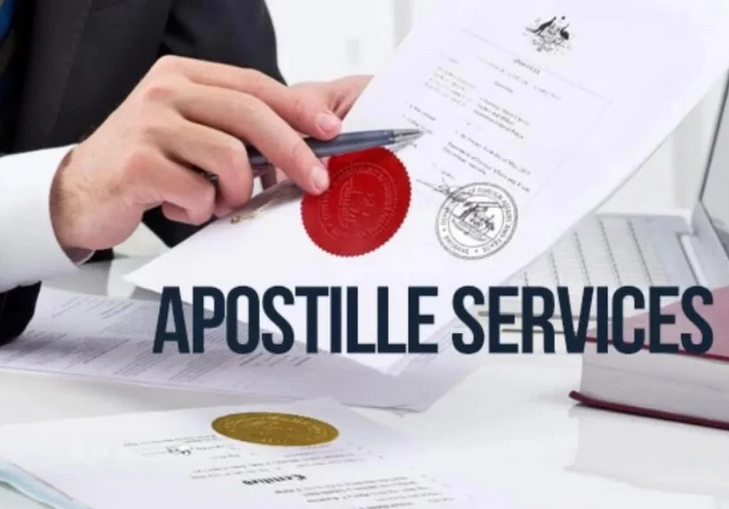Streamlined Apostille Process in Houston TX
Streamlined Apostille Process in Houston TX
Blog Article
Exploring the Factors Behind the Mandatory Requirement of Apostille Certification for Legal Papers
In the realm of lawful documentation, the necessary requirement of apostille certification has become a necessary facet that dramatically affects the credibility and recognition of legal documents on a global range. Comprehending the rationale behind this need involves diving right into the elaborate web of lawful intricacies, historic precedents, and worldwide agreements that underscore the relevance of apostille accreditation in today's interconnected world. By exploring the underlying factors behind this extensive requirement, a clearer image emerges of why this seemingly governmental procedure holds such immense significance for people, organizations, and governments alike.
Historic Evolution of Apostille Certification
Just how did the idea of apostille certification progress in time to come to be a vital part of international paper validation? The historic evolution of apostille accreditation days back to the early 20th century. The demand for a simplified approach of validating papers for use across boundaries became evident as international trade and traveling enhanced. In feedback to this need, the Hague Seminar on Exclusive International Law introduced the Apostille Convention in 1961. This international treaty developed a structured process for accrediting the credibility of documents to be recognized in participant nations.
At first embraced by a couple of European countries, the Apostille Convention slowly obtained global acceptance because of its effectiveness and performance in confirming the legitimacy of official papers. Throughout the years, the convention's reach expanded as even more nations signed up with, identifying the apostille as an universally accepted form of document verification. Today, apostille qualification has come to be a standard need for validating legal documents in worldwide purchases, making sure smooth interaction and lawful procedures between nations.
Simplifying International Paper Legalisation
The streamlining of worldwide record legalisation treatments has actually considerably boosted performance in cross-border transactions. Simplifying the process of legislating files for global use has come to be essential in assisting in swift and seamless deals between countries. Among the vital mechanisms that have added to this simplification is the fostering of the Apostille Convention, which supplies a standard approach for confirming the authenticity of documents across getting involved nations.
By adhering to the Apostille demands, nations concur to recognize each other's public papers as legitimate without the demand for more legalisation. This removes the lengthy and commonly troublesome procedure of numerous verifications by various authorities, conserving time and sources for companies and individuals participated in international activities.

Making Certain Paper Authenticity and Validity
To make certain the authenticity and credibility of lawful papers in worldwide deals, stringent verification procedures are crucial. By requiring apostille qualification for legal documents, authorities intend to verify the beginning of documents and confirm the trademarks of people involved.
Additionally, confirming the credibility of legal records through apostille accreditation boosts trust and confidence amongst parties taking part in worldwide purchases. It provides assurance that the papers offered are genuine and legally binding, thus minimizing the threats connected with deceptive activities. Furthermore, ensuring file credibility via apostille qualification streamlines the legalisation process, making it more efficient and reputable for individuals and organizations carrying out company across borders. Ultimately, by maintaining stringent verification requirements, apostille accreditation adds to a much more transparent and protected international lawful structure.

Assisting In Cross-Border Legal Recognition
In the realm of global purchases, the apostille accreditation not only makes certain the credibility and credibility of legal documents yet additionally plays an essential role in helping with cross-border legal recognition (Houston Apostille). When lawful documents bear an apostille certification, they are easily accepted by international authorities without the demand for additional confirmation. This structured process accelerates the recognition of documents in different nations, promoting efficiency and lowering administrative hurdles in lawful matters that transcend nationwide limits
Promoting cross-border legal acknowledgment with apostille certification cultivates count on and self-confidence in the authenticity of records exchanged in between countries. This recognition is especially essential in circumstances such as worldwide organization deals, fostering processes, or lawful proceedings entailing parties from various territories. By adhering to the criteria set forth by the Apostille Convention, countries accept honor the apostille seals affixed to files from various other member countries, hence simplifying the process of lawful recognition across boundaries. Eventually, the apostille certification offers as a fundamental device in promoting smooth global legal i was reading this collaboration and ensuring the smooth operation of cross-border purchases.
Conformity With International Treaty Standards
Conformity with international treaty criteria is imperative for guaranteeing the consistent application of legal laws across taking part countries. The Apostille Convention, developed in 1961, details the demands for the approval of public files among participant countries. By sticking to the criteria stated in this treaty, countries dedicate to acknowledging the credibility of each other's official documents Source without the need for further verification - Houston Apostille. This common acceptance improves the procedure of cross-border record acknowledgment, advertising performance and reducing governmental difficulties.
The Apostille certification, as mandated by the treaty, works as an assurance of authenticity for records such as birth certifications, marriage licenses, court judgments, and notarized acts. This standardized approach aids stop fraud and makes certain that legal documents stemming from one member nation are readily accepted in an additional. Furthermore, by abiding by international treaty requirements, countries demonstrate their commitment to promoting the principles of transparency, trust fund, and collaboration in lawful issues on a global scale.
Final Thought

In the world of lawful paperwork, the compulsory requirement of apostille certification has come to be an important element that dramatically impacts the validity and recognition of legal documents on a global range. Today, apostille qualification has actually become a standard requirement for verifying legal papers in worldwide purchases, making certain smooth communication and lawful process in between countries.
In addition, validating the credibility of lawful documents via apostille certification enhances trust fund and self-confidence amongst events involving in worldwide deals.In the realm of international transactions, the apostille accreditation not only makes sure the credibility and credibility of legal files but also plays a pivotal duty in promoting cross-border lawful acknowledgment. By sticking to the criteria established forth by the Apostille Convention, nations agree to recognize the apostille seals fastened to papers from other participant nations, therefore simplifying More Bonuses the process of legal acknowledgment across borders.
Report this page